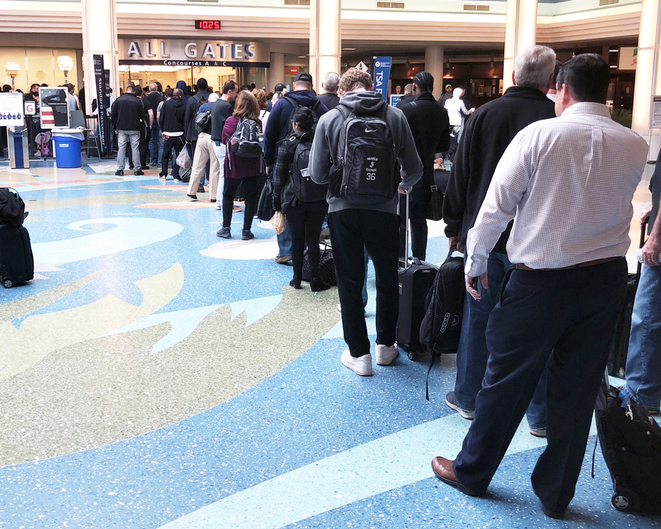Groups representing major U.S. airlines, airports and travel industry companies urged U.S. Senate leaders to back additional funding for Customs and Border Patrol (CBP) officers as the Trump administration said on Friday it was shifting additional officers to the southwestern border.
Airlines for America, representing American Airlines Group Inc, United Airlines, Southwest Airlines Co , Fedex Corp and others, joined major U.S. airport groups, the U.S. Travel Association, Global Business Travel Association and the International Air Transport Association, to back additional emergency funding and warned of the impact of shifting more officers from airports and other ports of entry.
“While understandable, a robbing Peter to pay Paul staffing paradigm is unsustainable. The traveling and shipping public should not be subjected to excessive wait times, and we need to avoid inflicting damage on commerce and the overall U.S. economy,” the letter said.
Last week, the White House sought $4.5 billion for southwestern border operations, citing an influx of people crossing the border.
The Trump administration earlier this year shifted 300 CBP agents to the southern border, the groups said.
A spokeswoman for CBP confirmed on Friday that the agency “is deploying an additional 186 CBP officers to assist Border Patrol agents at sectors on the Southwest border.”
The agency noted “these include CBP officers from Northern border ports, seaports, and airports in order to lessen the impact at any one particular port of entry.”
CBP informed the aviation and travel groups on Friday of the shift of the officers “to the southwest border in the coming weeks,” the letter said, adding CBP indicated “there’s potential for additional diversions.”
The letter noted that, with international travel increasing, a lack of funding “will certainly put considerable strain on CBP ports, harming both passengers and cargo throughput.”
Major U.S. airports and other business, industry and union groups earlier this month backed Senate legislation unveiled in April that would hire at least 600 new CBP agents annually. The May 1 letter noted significant delays “can increase supply-chain costs and cause passengers to miss their connections.






